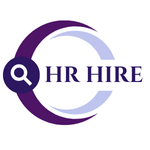How to Transition from HR Administrator to HR Manager in Ireland: A Practical Career Guide
Are you an HR Administrator in Ireland considering stepping into a managerial role? The transition from HR administration to HR management is both achievable and rewarding, but it requires strategic planning and proactive development. In this guide, we’ll explore actionable steps to help you make this transition successfully.
What Skills Are Essential for HR Management?
To move into HR management, you'll need to develop a blend of technical HR knowledge and soft skills. Key areas to focus on include:
Employment Law: Understanding Irish employment legislation is crucial for managing compliance and advising on HR matters.
Employee Relations: Developing strong interpersonal skills to handle conflict resolution and foster positive workplace relationships.
Strategic Thinking: Ability to align HR practices with business objectives, contributing to overall organisational success.
Leadership Skills: Experience in leading teams, managing projects, and making decisions that impact the organisation.
How Can I Gain Experience Beyond Administrative Tasks?
Expanding your experience beyond administrative duties is vital. Consider the following strategies:
Volunteer for HR Projects: Take on additional responsibilities such as assisting with recruitment campaigns or employee training sessions.
Cross-Department Collaboration: Work closely with other departments to understand their HR needs and how HR can support them.
Mentorship: Seek guidance from current HR managers to gain insights into their roles and responsibilities.
Engaging in these activities will provide you with a broader perspective and demonstrate your initiative and readiness for a managerial role.
What Qualifications Will Enhance My HR Career?
While experience is invaluable, formal qualifications can significantly boost your prospects:
CIPD Accreditation: Achieving Chartered Member status (MCIPD) is highly regarded in Ireland and demonstrates a commitment to professional development.
HR Management Courses: Enrol in courses that cover topics such as strategic HRM, organisational development, and leadership.
Continuous Learning: Stay updated with the latest HR trends and best practices through workshops, webinars, and industry seminars.
Investing in education not only enhances your skills but also signals to employers your dedication to advancing in HR management.
How Long Does It Take to Transition from HR Admin to HR Manager?
The timeline can vary based on individual circumstances and opportunities. However, with focused effort, many professionals make the transition within 2 to 5 years. Factors influencing this include:
Organisational Structure: Larger organisations may offer more defined career progression paths.
Networking: Building relationships within and outside your organisation can open doors to new opportunities.
Performance: Consistently demonstrating your capabilities and adding value to the organisation accelerates career advancement.
Patience and perseverance are key; continue to seek growth opportunities and remain adaptable to changes in the HR landscape.
Key Tips for Aspiring HR Managers:
Expand Your Skill Set: Gain experience in recruitment strategy, employee relations, HR analytics, performance management, and policy development. These are core aspects of a HR Manager’s responsibilities in Irish organisations.
Develop Strategic Thinking: Understand how HR initiatives link to broader business objectives. Learn to anticipate workforce needs and support business growth through proactive people strategies.
Enhance Leadership and Communication Skills: HR Managers lead teams, influence stakeholders, and advise managers on complex situations. Strong communication, negotiation, and coaching abilities are essential.
Pursue Professional Qualifications: CIPD Level 7 or equivalent certifications provide credibility and strengthen your business and HR knowledge for managerial roles.
Seek Mentorship and Networking: Build relationships with current HR Managers or HRBPs to gain insights, guidance, and exposure to strategic projects.
Show Initiative: Volunteer for cross-functional projects or take ownership of HR programmes to demonstrate readiness for greater responsibility.
Challenges HR Administrators Might Face in a Managerial Role:
Balancing Strategic and Operational Responsibilities: Unlike administrative roles, managers must combine hands-on HR work with long-term strategic planning.
Decision-Making Pressure: HR Managers often make decisions with direct business impact, requiring confidence, judgement, and risk awareness.
People Management: Managing teams, resolving complex employee relations issues, and motivating staff requires advanced interpersonal and leadership skills.
Stakeholder Influence: HR Managers must work with senior leaders, sometimes challenging existing perspectives while advocating for HR-driven business solutions.
Keeping Up with Irish HR Legislation and Trends: Continuous learning is essential to maintain compliance, advise effectively, and implement best practices in Ireland’s evolving HR landscape.
By actively preparing for these responsibilities and challenges, HR Administrators can confidently transition into HR Manager roles, positioning themselves as trusted advisors and strategic leaders within their organisations. Success comes from a combination of practical experience, continuous learning, and demonstrating measurable impact on both people and business outcomes.









